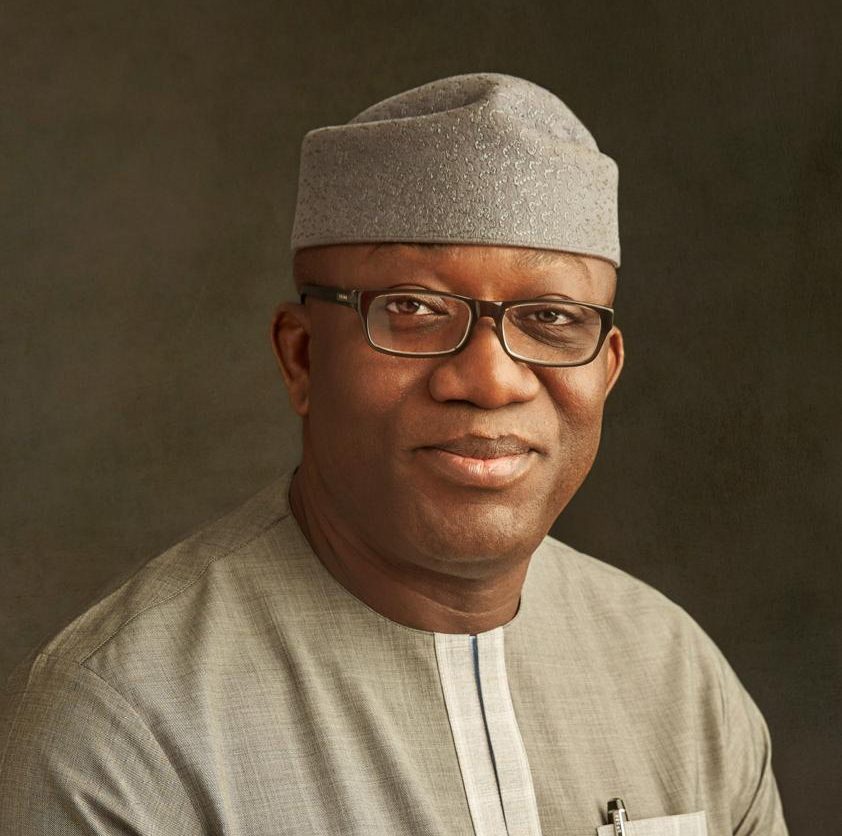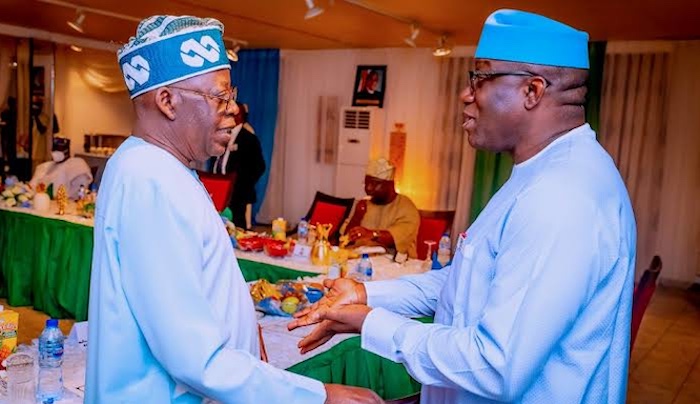President Bola Ahmed Tinubu has paid glowing tribute to former Ekiti State governor, Dr. Kayode Fayemi, on the occasion of his 60th birthday, celebrating his role in Nigeria’s pro-democracy movement, governance, and party politics. In a statement personally signed by him, Tinubu acknowledged Fayemi’s brilliance, commitment, and strategic skills, which were instrumental in sustaining the struggle against military rule in the 1990s and later shaping Nigeria’s democratic landscape.
Tinubu traced his relationship with Fayemi to the early 1990s, during the fight against the annulment of the June 12, 1993, presidential election—an election widely regarded as the freest and fairest in Nigeria’s history. As part of the pro-democracy movement, both men, alongside other activists, worked tirelessly to resist military rule, particularly during the dictatorship of General Sani Abacha.
“My relationship with Dr. Kayode Fayemi dates back to our time together in the pro-democracy movement in the ’90s, when we mounted local and international campaigns against military dictatorship,” Tinubu stated.
The president praised Fayemi’s ingenuity and strategic thinking, which played a crucial role in the resistance against Abacha’s regime. He particularly highlighted Fayemi’s involvement in the establishment of Radio Kudirat, a clandestine pro-democracy radio station named after Kudirat Abiola, who was assassinated by agents of the military government. According to Tinubu, Radio Kudirat was a vital platform in amplifying the voices of activists at home and abroad, keeping the struggle for democracy alive despite government crackdowns.
“The military government routinely raided and proscribed newspapers such as Concord, Punch, Guardian, and magazines such as Tempo/TheNews and TELL. General Abacha was running amok, arresting activists, jailing journalists, and instilling fear in anyone opposed to his oppressive regime. There was a need to have a radio station covering the activities of the pro-democracy movement at home and abroad and putting more significant pressure on the Abacha junta. Dr. Fayemi and other activists actualized the birth of Radio Kudirat,” Tinubu said.

With the deaths of Abacha and Chief MKO Abiola in 1998, Nigeria’s political climate changed significantly. A transition to democracy was announced by General Abdulsalami Abubakar, and many former exiled activists, including Fayemi, returned home to contribute to nation-building.
Upon his return in 1999, Fayemi founded the Centre for Democracy and Development (CDD), an organization dedicated to promoting democracy, governance, and peace-building across Nigeria and Africa. His work at the CDD further cemented his reputation as a public intellectual and policy expert, setting the stage for his transition into politics.
In 2006, Fayemi decided to contest for the governorship of Ekiti State under the platform of the Action Congress (AC). Despite facing significant political obstacles, including alleged electoral manipulation, he pursued legal redress. Tinubu recalled how Fayemi’s victory was hard-fought:
“Though the PDP candidate was declared the winner of the election, it was clear that Dr. Fayemi and our party, Action Congress, had been cheated out of an apparent victory. We decided to challenge the election at the Election Petitions Tribunal. After a long-drawn, painful, rigorous, and emotionally draining court process that lasted over three years, Dr. Fayemi was declared the winner in 2010 after a court-ordered re-run that also ended up at the Election Petitions Tribunal and the Appeal Court.”
Fayemi’s tenure as governor was marked by numerous reforms and infrastructure projects aimed at improving governance and service delivery in Ekiti. However, after serving his first term, he lost his re-election bid in 2014. Undeterred, he remained active in national politics. In 2015, he was appointed Minister of Mines and Steel Development in President Muhammadu Buhari’s cabinet, where he worked to revamp Nigeria’s mining sector.
Tinubu lauded Fayemi’s contributions to the formation and success of the All Progressives Congress (APC). As one of the architects of the APC, Fayemi played a significant role in the merger of opposition parties in 2013. He also chaired the panel that conducted the party’s presidential primaries, which led to the emergence of Buhari as the APC candidate for the 2015 election.
“Fayemi then deployed his energy and organizational ability as the Director of Policy of the APC/Buhari Campaign Council, which successfully prosecuted the 2015 presidential election. Our party’s victory in the 2015 Presidential election, defeating an incumbent president and a ruling party that had vowed to rule Nigeria for 60 unbroken years, was a fitting reward for the hard work, teamwork, and capacity demonstrated by Fayemi, other campaign council members, and party leadership,” Tinubu said.
Fayemi later returned as Ekiti State governor in 2018, where he focused on economic development and social welfare amid financial challenges. His tenure, according to Tinubu, left an indelible mark on the state.
As the 2023 presidential election approached, Fayemi joined the race for the APC presidential ticket. However, at the party’s convention, he made a significant decision to step down in favor of Tinubu. The president praised this act, describing it as a demonstration of humility and comradeship.

“Dr. Fayemi, on the party convention night, was gracious when he openly announced that he was stepping down for me. His decision demonstrated remarkable humility and comradeship,” Tinubu remarked.
Tinubu described Fayemi as “an able lieutenant, an invaluable ally, and a committed patriot” whose dedication to Nigeria’s progress has been unwavering. He wished him continued health and fulfillment in the years ahead.
Meanwhile, Fayemi, while marking his 60th birthday, expressed gratitude for his journey so far. At a thanksgiving Mass at St. Martins’ Catholic Church, Isan-Ekiti, he reflected on his life, calling himself a “product of grace” and reaffirming his commitment to national development.
He also spoke about his relationship with his successor, Governor Biodun Oyebanji, whom he commended for his leadership and commitment to the progress of Ekiti State. Fayemi praised Oyebanji’s inclusive governance style, which he said had fostered unity and development in the state.
“Oyebanji has made me proud by his exemplary leadership and demonstrated capacity in terms of all-round development of the state. He has carried on with the vision of the founding fathers of the state by ensuring that governance is not hindered by political divide,” Fayemi stated.
Sources




